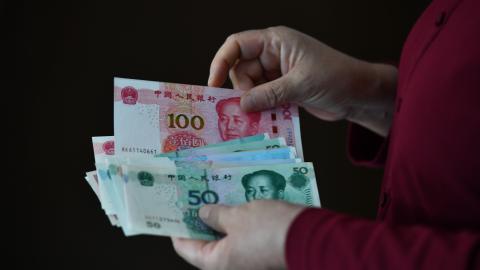Treasurer Jim Chalmers left China late last month confident that Beijing’s efforts to stimulate its economy were a “very good” development for China and therefore Australia.
Chalmers is cheering on the stimulus because our future fiscal surpluses depend heavily on a new China boom to keep commodity prices elevated.
The treasurer has a doctorate in political science and not economics. That being the case, and despite the surge in China’s sharemarkets, he ought to be less sanguine about the longer-term prospects for China, the floor price for iron ore, and therefore our fiscal situation.
The political scientist in him should understand that the Chinese economic slump is unlikely to right itself because it has deep-rooted political origins. This means continued trouble for China and a heavily exposed Australia.
The measures announced in recent days are mainly about increasing liquidity and the flow of credit. For example, banks will be recapitalised and allowed to keep fewer deposits in reserve which could free up one trillion yuan in loans. The People’s Bank of China lowered the medium-term lending rate, and buyers will be required to put less money as a down payment for houses.
It should be immediately obvious to any watcher of the Chinese economy that its problems arise from too much debt and the enormous and systematic misallocation of capital. Making it easier for businesses and firms to access more debt isn’t the silver bullet.
Indebted businesses are struggling to manage their interest and capital repayment obligations. There are an estimated 60 million unsold apartments in China. Households are bunkering down because about 70 percent of their wealth is tied to owning residential property, and supply far outweighs demand. Why then would they jump back into owning even more property?
Strategic sectors
Others counter that this is not the unsophisticated reliance on a fixed investment model which has clearly run out of puff. The loosening of credit is an attempt by Beijing to accelerate the upscaling of the economy which will underpin several more decades of robust growth.
The idea is for Chinese lending and finance institutions to support domestic firms in high-tech and lucrative sectors that will underpin future power and wealth. As China did with solar panels, the idea is to acquire, develop, or even steal world-class technology and capabilities, support the creation of entire supply chains inside the country, eliminate overseas competition, and subsequently dominate domestic and global markets in strategic sectors. These include artificial intelligence, automation such as robotics, biotechnology, electric vehicles and green technologies to name several.
Xi Jinping is applying this approach to a growing number of strategic and advanced sectors as part of his high-quality growth mantra. The problem is that as with solar panels, massive assistance provided to Chinese firms will lead to the predictable problem of oversupply in domestic and global markets. Applying this state-led approach to an ever-expanding list of advanced and green sectors will only worsen the problems of over-capacity, indebtedness, and inefficiency.
There is only one way for China to achieve sustainable growth and this is to rapidly increase private consumption, which is persistently beneath 40 percent of gross domestic product. That makes it one of the lowest of any major economy in the world.
In China, wages are the major source of disposable income for Chinese households. Beijing is trying to upend classical trade economics by simultaneously achieving rising wages across the board and dominating exports of high-tech and high-value products and services at the same time.
This goes against China’s own experience, in which it became an exporting superpower due to lower-cost inputs than those of its competitors. In other words, suppressing domestic demand and subsidising production will worsen Chinese economic woes.
Economic power
If only its leaders had the wisdom and political will to transfer material opportunity away from state-owned and favoured firms and allow the private sector to do its thing. But that would weaken the CCP’s grip on the economic elements of power and that is non-negotiable.
The Albanese government is relying on China to defy the iron laws of economics for as long as possible, or at least until the next election to make the case that it is fiscally responsible and is applying prudence and skill when it comes to managing our economic future.
The solid foundation for continued Australian prosperity is not hoping and praying that China can keep its spluttering fixed investment model going for a few more years but increasing the productivity and adaptability of our economy.
Decreased flexibility in industrial relations, will not address declining labour nor capital productivity. Consider, Harvard University’s ranking of Economic Complexity, which compares the complexity of products and services produced by various countries. Australia’s ranking has declined from 53rd in 1995 to 93rd in 2021. This places us just above Pakistan and just below Uganda.
Contrast this with our trading partners such as Japan, South Korea, the United Kingdom, the United States and China. In 2021, they were ranked 1st, 3rd, 8th, 14th, 18th respectively.
The Chinese stimulus is hardly the answer to our growing challenges.
Read in The Australian Financial Review.
Enjoyed this article? Subscribe to Hudson’s newsletters to stay up to date with our latest content.




















